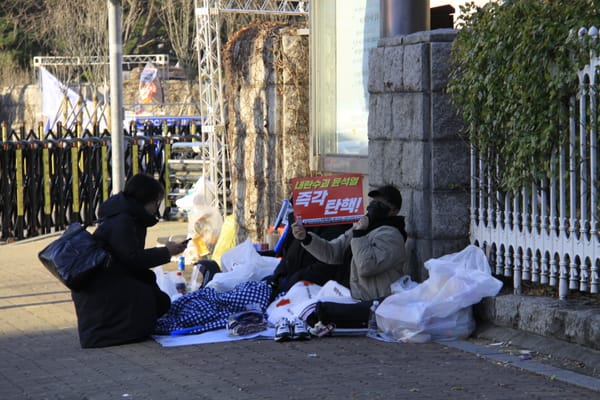Asia Undercovered Round-up: 19 July 2023
Undercovered last week
You've likely seen numerous headlines about the floods in the US, or the heat in Spain. But did you hear anything about flooding that killed at least 50 in Pakistan last week? Likely not (Dawn).
Horrible news from Bangladesh, where a labor organizer, Shahidul Islam, was beaten to death after a meeting with management at a factory. It seems clear that he was targeted due to his work (CCC)
Worth reading: This piece by Joan Rumengan for New Naratif on the female foreign refugees who escape to Indonesia, but face rampant gender-based violence and a weak legal system in their new, temporary dwellings.
For Unbias the News, Ritwika Mitra takes us to rural north India, where custodial deaths are leaving women widowed, and often struggling to survive in the patriarchal society. She shares their stories, and struggles, and what can be done to aid them.
This is deeply worrying. A new investigation from USIP found that crime syndicates are thriving in post-coup Myanmar, working with the military but also in ethnic regions, taking advantage of the instability and economic malaise to traffic goods, weapons, and rugs.
Meanwhile, Bertil Lintner takes a more pessimistic outlook on the situation in the country, including concerns that the so-called United Front of People's Defense Forced waging war against the army may be an illusion, as pan-ethnic resistance has often failed in the country's troubling post-colonial history (The Irawaddy).
More censorship in China, this time Wu Xiaobo, a prominent Chinese business journalist, has been banned from the social media app Weibo. His crime? Raising concerns about economic growth and unemployment (IPI).
Being abroad is, increasingly, no protection from the reach of the Chinese security state. Last month in Laos, exiled critic Yang Zewei disappeared from his home, likely kidnapped and forced back to China (Safeguard Defenders).
Electoral Politics
So, it was hoped that Thailand would have a new Prime Minister last week. But last minute politicking meant that Pita Limjaroenrat was not selected, despite his coalition's overwhelming victory in this year's election. Erin Cook has a good write-up about what happened, and what's next, in her newsletter Dari Mulut ke Mulut.
Another election is approaching in the Maldives, which, if you recall, has been a front in the battle for influence between India and China. But in this piece, David Brewster and Athaulla A Rasheed caution against taking a purely geopolitical interpretation of what's happening, and argues that local issues matter, too (Lowy).
Geopolitics
The China-led Asian Infrastructure Investment Bank (AIIB) saw its global communications director withdraw, claiming that the institution was dominated by the Chinese Communist Party. In this piece, Robert Wihtol explores this, the risk of Chinese influence in the institution, and more.
And another wonderful piece by Kontinentalist, this one by Zafirah Mohamed Zein looking at whether foreign investment is sustainable in Cambodia (which, by the way, has an "election" coming up, keep an eye out for a special issue on that soon!)
Solutions Stories
A rare hopeful story, about how Chin refugees in Mizoram, India, are sharing and building on their common musical culture, and bridging differences across the border (Emily Fishbein, Frontier Myanmar).
And as climate change makes heat waves and floods more likely, there's a lot we can learn from Asia, particularly from traditional architecture. In this piece, Moh Tahmini interviews Yu Sing about using natural materials and techniques in contemporary design (Mongabay).
What I wrote
I initially became a journalist in Indonesia, about a decade ago, because I wanted to write about the country’s troubling history with deforestation, driven primarily, historically, by demand for tropical commodities including palm oil, paper pulp, and timber.
Then, the main export markets were the US, Europe, and Japan. Today, it's China, and I was curious to look into how around the world were dealing with this challenge. This piece, for The Wire China, explores that.
What happens when an Indonesian company is blacklisted in the west over labor and environmental issues? Occasionally, it grows and prospers, as Nithin Coca tells us in this excellent piece: https://t.co/IfZ5y33HDz
— David Barboza (@DavidBarboza2) July 17, 2023
It's paywalled, but here's the main takeaway
It’s worrying if the future of Southeast Asia forests is mere hope that an authoritarian government, actively committing human rights violations, will “do the right thing.” It’s also a shame that environmental non-profits aren’t willing or able to hold the Chinese government to the same standard they hold the US, Europe, Japan, or Indonesia.
Asia Undercovered: Round-ups and in-depth analysis of the news, events, trends and people changing Asia, but not getting enough attention in the US media. Curated by journalist Nithin Coca.



